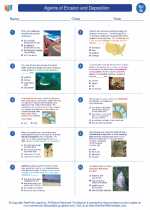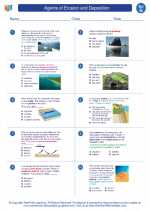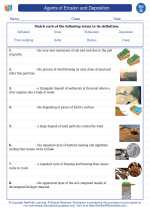Invertebrates
Invertebrates are animals that do not have a backbone. They make up about 97% of all animal species on Earth and are found in a wide range of environments, from the depths of the ocean to the highest mountains. Invertebrates play crucial roles in ecosystems as they are involved in processes such as pollination, decomposition, and nutrient cycling.
Types of Invertebrates
There are several groups of invertebrates, including:
- Arthropods: This group includes insects, spiders, crustaceans, and millipedes. Arthropods have exoskeletons and jointed legs.
- Mollusks: Examples of mollusks include snails, clams, and octopuses. They typically have soft bodies and some form of protective shell.
- Annelids: These are segmented worms, such as earthworms and leeches. They have a body made up of repeating segments.
- Cnidarians: Cnidarians include jellyfish, corals, and sea anemones. They have specialized stinging cells called cnidocytes.
- Echinoderms: Starfish, sea urchins, and sea cucumbers belong to this group. They have a spiny skin and a unique water vascular system.
- Platyhelminthes: These are flatworms, some of which are parasitic. They have flattened bodies and simple nervous systems.
Characteristics of Invertebrates
While there is a wide diversity among invertebrates, they share some common characteristics:
- They lack a backbone or vertebral column.
- Many have exoskeletons for protection and support.
- They often have simpler nervous systems compared to vertebrates.
- Most reproduce sexually, but some can also reproduce asexually.
- They exhibit a wide range of feeding strategies, including filter feeding, predation, and parasitism.
Study Guide
When studying invertebrates, it's important to focus on the following key points:
- Identify and describe the major groups of invertebrates, including examples of each group.
- Understand the unique characteristics and adaptations of invertebrates for their environments.
- Compare and contrast the reproductive strategies of different invertebrate groups.
- Examine the ecological roles of invertebrates in various ecosystems.
- Explore the significance of invertebrates in human society, such as in agriculture, medicine, and environmental conservation.
By understanding the diversity and importance of invertebrates, we can better appreciate the complexity of the animal kingdom and the interconnectedness of all living organisms.
.◂Science Worksheets and Study Guides Seventh Grade. Agents of Erosion and Deposition

 Worksheet/Answer key
Worksheet/Answer key
 Worksheet/Answer key
Worksheet/Answer key
 Worksheet/Answer key
Worksheet/Answer key
 Vocabulary/Answer key
Vocabulary/Answer key
 Vocabulary/Answer key
Vocabulary/Answer key
 Vocabulary/Answer key
Vocabulary/Answer key
 Vocabulary/Answer key
Vocabulary/Answer key
